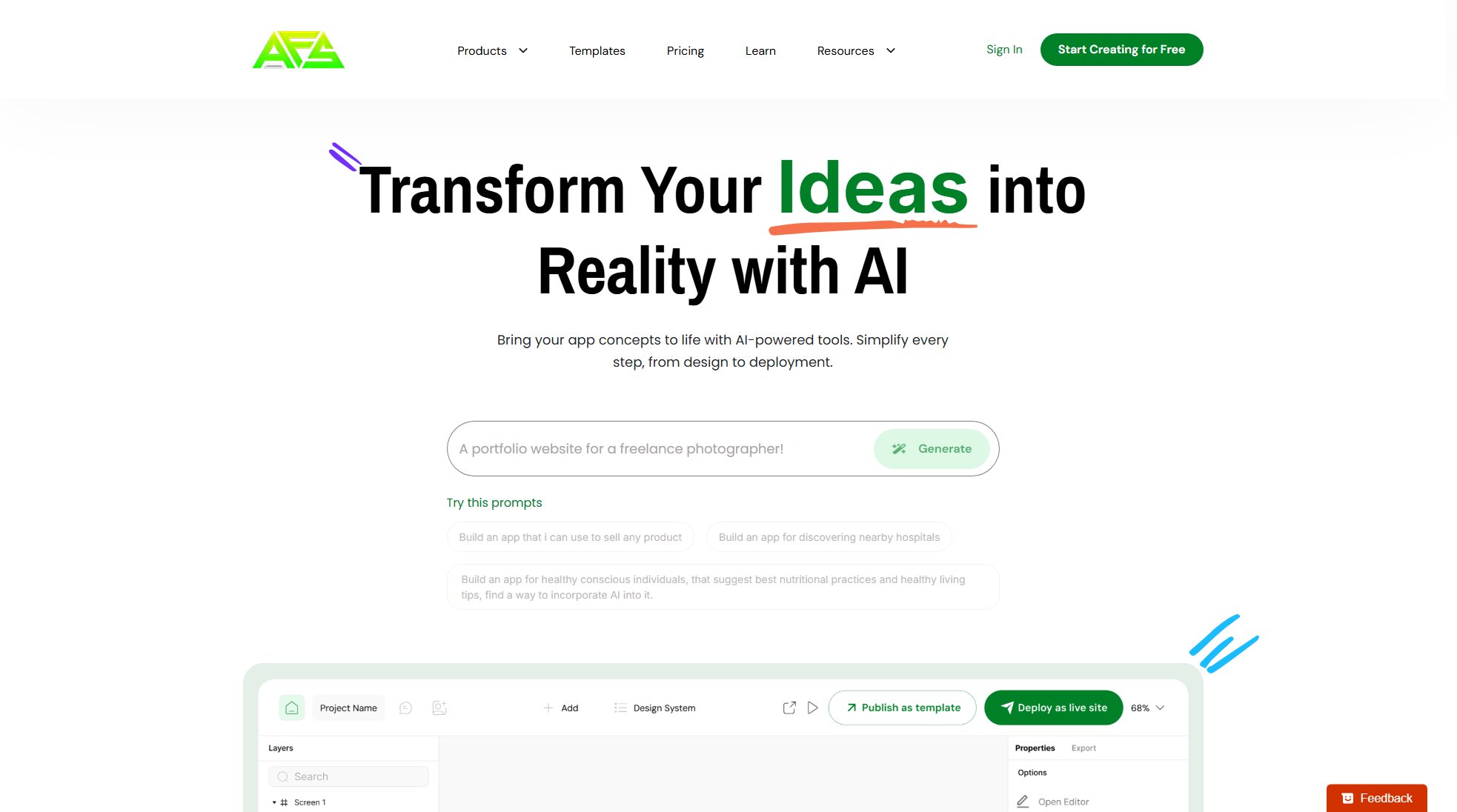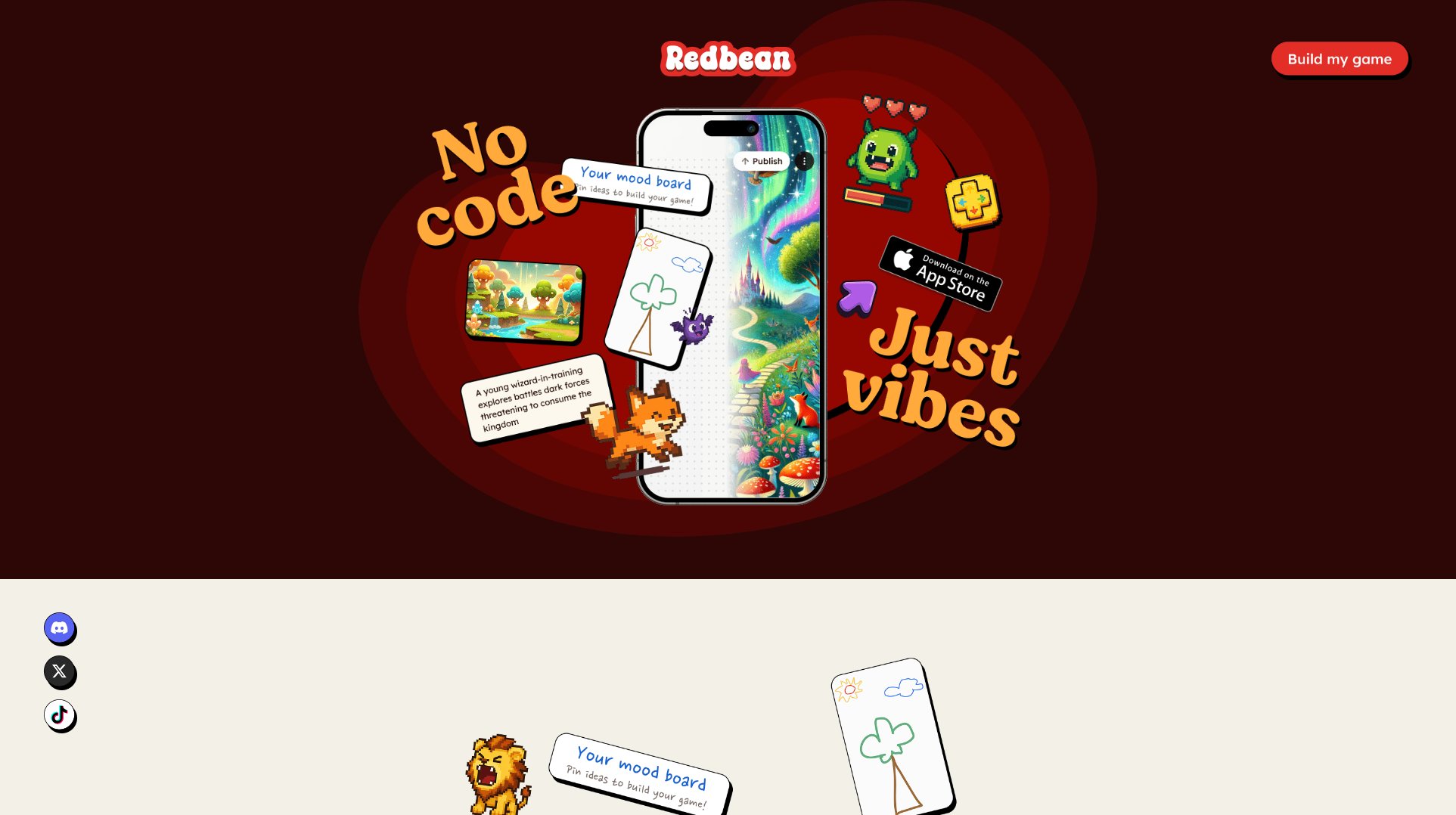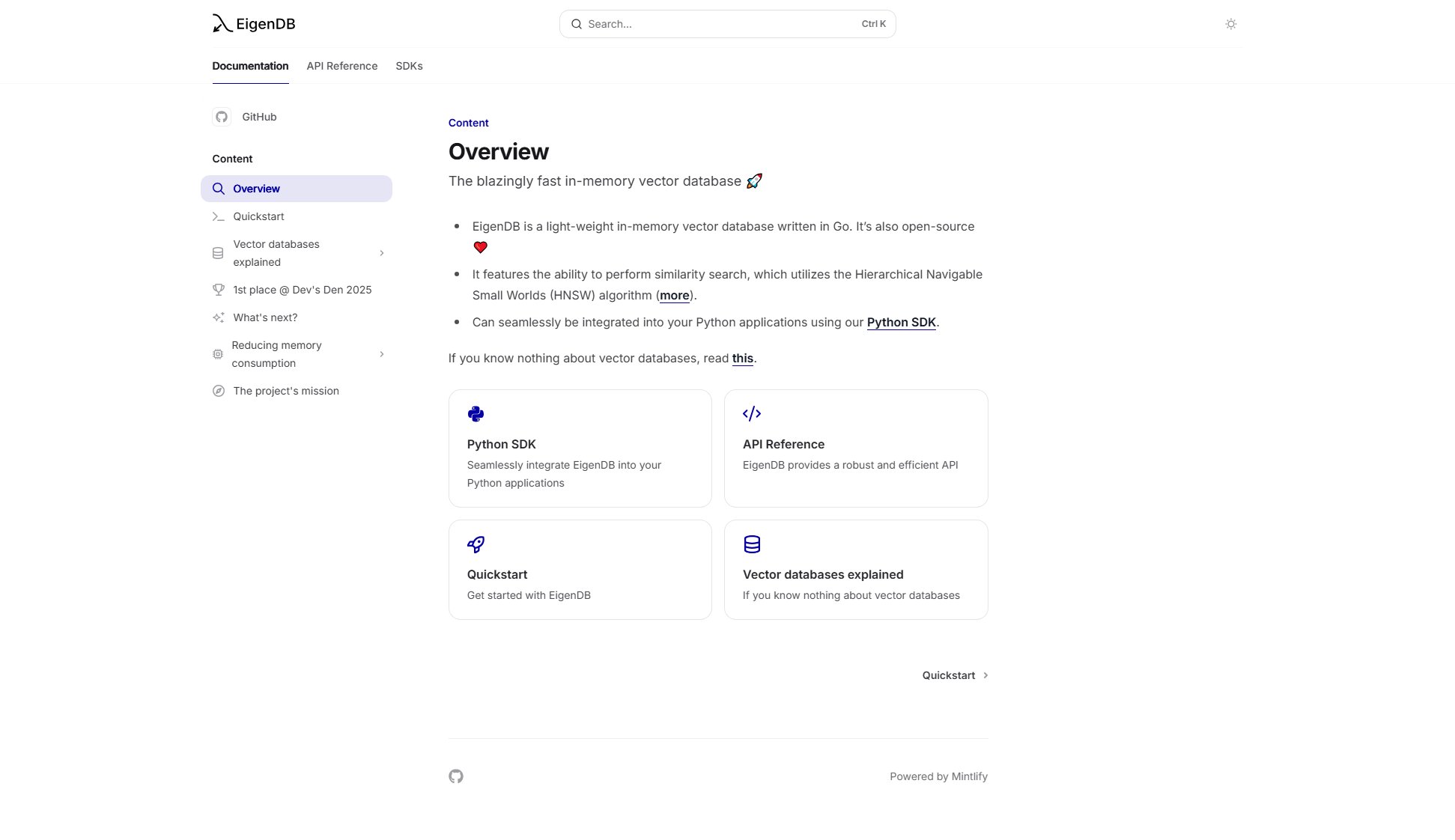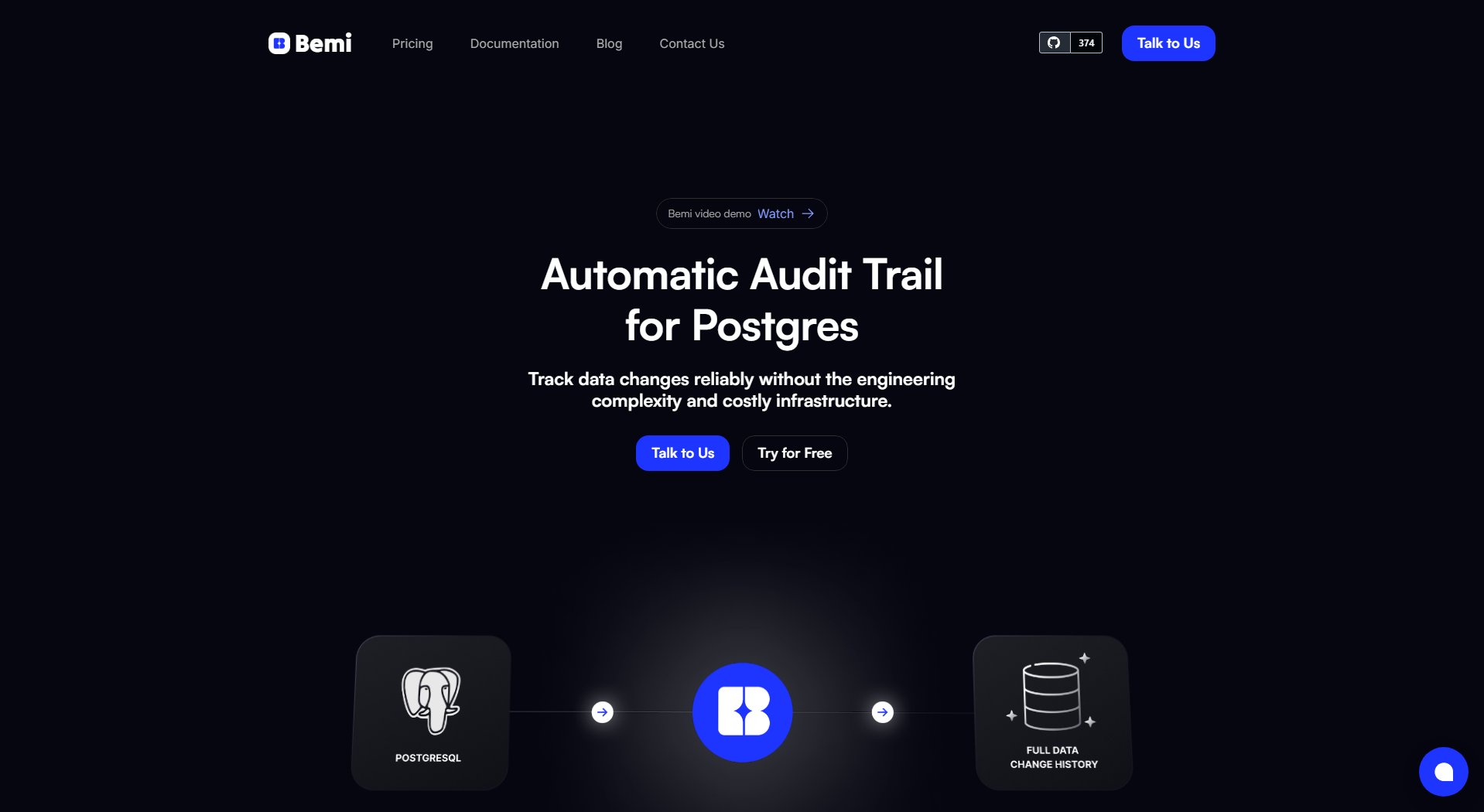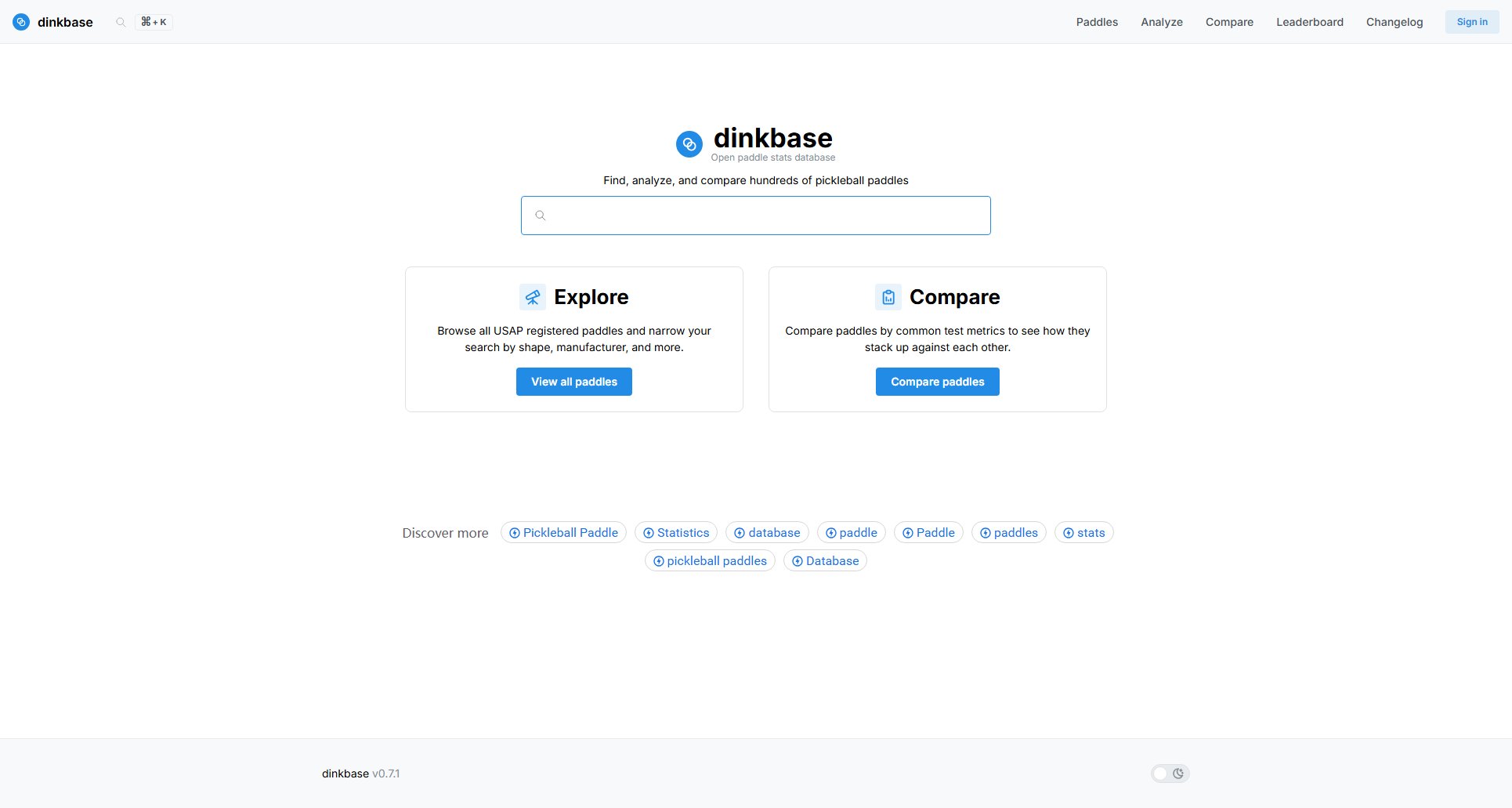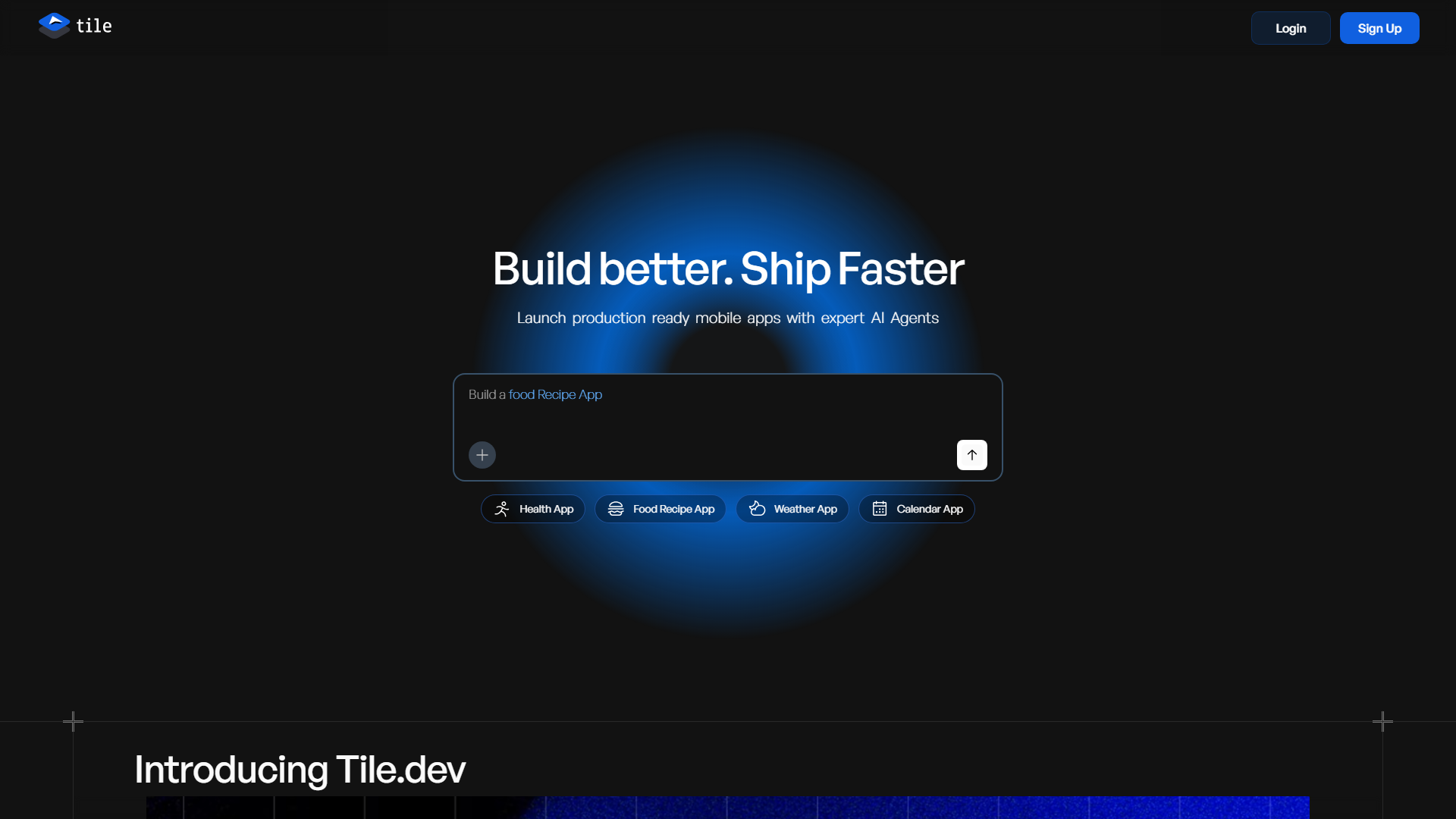Coffy
Embedded Python DB engine with NoSQL, SQL & Graph support
What is Coffy? Complete Overview
Coffy is a lightweight, local-first embedded database engine designed specifically for Python developers. It uniquely combines NoSQL, SQL, and graph database capabilities within a single unified API, eliminating the need for multiple database systems. As a pure Python solution, Coffy is perfect for fast prototyping, scripting, and local application development where simplicity and flexibility are key. The engine solves several pain points for Python developers: it provides persistent local storage options (JSON or SQLite) while also offering in-memory modes for temporary data needs. Unlike traditional database solutions, Coffy requires no server setup or external dependencies, making it exceptionally easy to integrate into Python projects. Target users range from individual developers working on personal projects to professional teams building local applications that require flexible data modeling capabilities. The unified query interface across all database models significantly reduces the learning curve compared to using separate database systems.
Coffy Interface & Screenshots
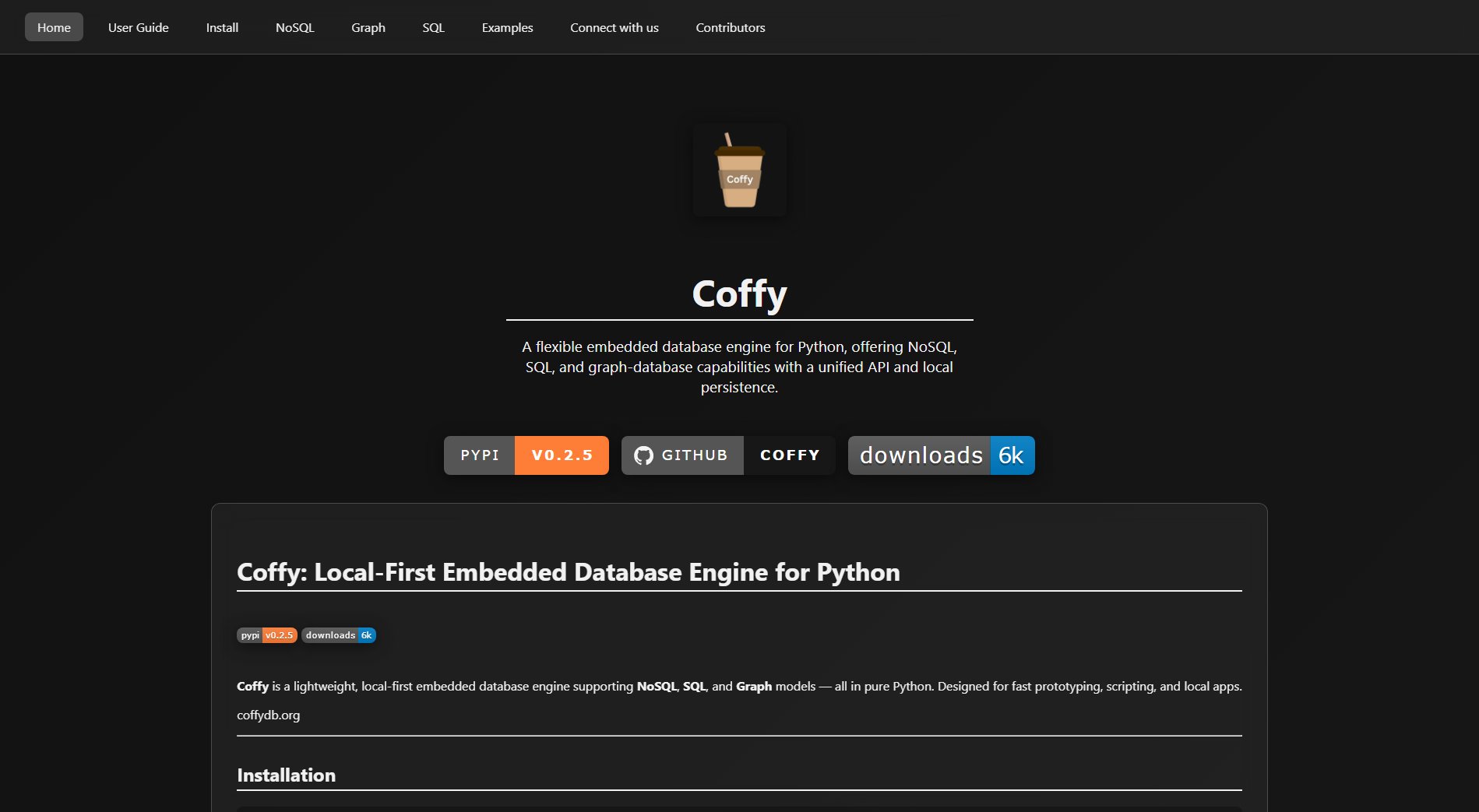
Coffy Official screenshot of the tool interface
What Can Coffy Do? Key Features
Multi-Model Database Support
Coffy stands out by offering NoSQL (document store), SQL (via SQLite wrapper), and graph database capabilities all within a single Python package. This eliminates the need to learn and integrate multiple database systems for different data modeling needs in your application.
Local Persistence Options
Choose between JSON file storage for simple document persistence or SQLite-backed storage for more robust needs. Coffy also provides an in-memory mode (:memory: or None) for temporary data storage during prototyping or testing.
Graph Database Engine
Coffy.graph offers NetworkX-based local graph database functionality with advanced features like declarative traversal syntax (match_node_path()), label/type filtering, limit/offset controls, and result projection. Its unified API handles both nodes and relationships seamlessly.
Document Store with Chainable Queries
Coffy.nosql provides a pure-Python embedded document store featuring auto-indexing on all top-level fields. Its intuitive chainable query syntax (.where().eq().or_().in_()) and merge/lookups across collections offer MongoDB-like functionality without server overhead.
SQLite Wrapper
Coffy.sql serves as a lightweight wrapper around SQLite, providing Python developers with familiar SQL capabilities while maintaining Coffy's easy integration and local-first approach.
Unified Query Interface
Regardless of which database model you're using, Coffy provides consistent logical and comparison operators across all engines. This unified approach significantly reduces context switching when working with different data models.
Command Line Interface
Coffy includes a robust CLI tool that allows developers to interact with their databases directly from the terminal, streamlining development workflows and debugging processes.
Best Coffy Use Cases & Applications
Rapid Prototyping
Developers can use Coffy's in-memory modes to quickly prototype applications without worrying about database setup. The ability to switch between NoSQL, SQL, and graph models allows for flexible data modeling during early development stages.
Local Application Development
For Python applications that need local data storage without server dependencies (like desktop apps or CLI tools), Coffy provides persistent storage options with the flexibility to use the most appropriate data model.
Data Analysis Scripting
Data scientists and analysts can leverage Coffy's different engines within their Jupyter notebooks or analysis scripts – using graph models for network analysis, document stores for JSON data, or SQL for structured datasets.
Educational Projects
Coffy serves as an excellent teaching tool for database concepts, allowing students to experiment with different database paradigms within Python's familiar environment without complex setup requirements.
How to Use Coffy: Step-by-Step Guide
Install Coffy via pip by running 'pip install coffy' in your terminal. The package has no external dependencies beyond Python 3.6+ and will automatically handle any required SQLite integration.
Choose your database engine based on your data modeling needs: import coffy.graph for graph databases, coffy.nosql for document storage, or coffy.sql for relational data. Each engine maintains consistent patterns while offering model-specific features.
Initialize your database instance, specifying either a file path for persistence (JSON or SQLite) or using ':memory:'/'None' for temporary in-memory storage. Each engine handles initialization slightly differently, so consult the specific documentation.
Begin creating and querying data using the engine's API. For graph databases, define nodes and relationships. For document stores, create collections and documents. For SQL, create tables and execute queries.
Take advantage of Coffy's unified query interface to filter, sort, and manipulate your data. Chain operations together for complex queries, and use the CLI tool to inspect your database during development.
When ready for production, simply ensure your persistence file is included in your deployment. Coffy databases require no additional server setup or runtime dependencies beyond Python itself.
Coffy Pros and Cons: Honest Review
Pros
Considerations
Is Coffy Worth It? FAQ & Reviews
Yes, Coffy is MIT-licensed and suitable for production use, particularly for local applications and tools. However, as with any database choice, evaluate its performance and feature set against your specific requirements.
Coffy provides similar functionality to these specialized databases but in a unified, local-first Python package. It trades some performance and scalability features for simplicity and ease of integration in Python environments.
Yes, you can use Coffy's different engines within the same application, though each maintains separate data stores. The unified API makes switching between them relatively seamless.
Coffy supports Python 3.6 and above. Being pure Python (with optional SQLite usage), it's compatible with most Python environments.
You can choose JSON files for document storage or SQLite files for relational data. The graph engine uses either format depending on configuration. In-memory options are also available.
